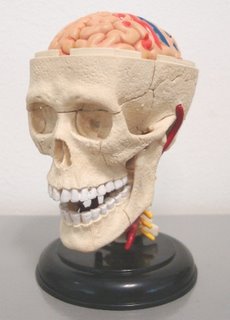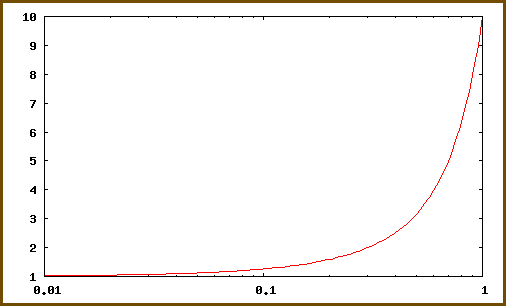 Why Do Extremists Exist?
Why Do Extremists Exist?When you read the news on terrorism and war these days, the term "extremist" appears often.
Sounds nasty. A man on the edge. Anything can happen.
But do these "extremists" consider themselves extreme in any way? Most of them appear to live very normal, quiet lives. Just like you and me.
Except one difference.

This.
Don't get it?
I'll let an old uncle explain it himself.

Paracelsus ("Father" of Toxicology) :
Poison is in everything, and no thing is without poison. The dosage makes it either a poison or a remedy.
The popular short version of his quote is "The dose makes the poison". There can be too much of a good thing. Even drinking too much water can kill people.
No, I'm not kidding.
For any substance, there is an effective dose range where it has the maximum beneficial effect to a person. Too low and it has no measurable benefits. Too high and there is no further increase in benefits. Instead the substance starts to become toxic and the side effects kick in.
Of course different substances have different dose-response curves. A tiny amount of some drugs can produce very strong effects. Also some drugs have a very narrow margin of safety; there is only a fine line between helpful and harmful.
You say, "oh well, moderation in everything then."
No. "Moderation" is a meaningless term. The best dose of a substance is not always at the middle point between no effect and lethal effect.
This is what I mean.

In this example, the effective dose (blue) and toxic dose (purple) curves have a distance separating them. This is called the margin of safety. Here, you can have a relatively high dose that has beneficial effects for 90% of the population (ED90) while having toxic effects for less than 10% of the population (TD10).
Now imagine another drug that has a narrower margin of safety. The blue and purple curves come closer together, let's say the purple curve starts at rising at ED50 instead of ED90. You can see that you would recommend a lower dose in order to reduce the toxic effects of the drug, but then it also has beneficial effects for less people.
So it's not about "moderation".
You say, "well, thanks for an introductory course on pharmacology, geek. What has this got to do with anything?"
My point is that extremists arise when people don't see a dose-response in what they do. They believe that if a little something is good for you, then truckloads of that stuff will still be good. In fact, the further you push it, the better it gets. Way way way better!

Like this.

Or *gasp* even this!
If they believe that their actions can only have increasing beneficial effects, like an open ended curve that goes towards infinity, then how can they possibly be "extreme"?
Since nothing they do can ever be toxic, no thoughts or actions can ever be too extreme.
That's how they are different from you and me.
Many of you will point out that extremism has many other root causes. The real world is far more complex. Inability (or refusal) to see dose-response relationships may only be a minor player in all this.
I definitely agree.
However, I hope that people at least have a chance to know what dose-response is about. If they choose to disregard it, then well, at least we tried.
Thus I strongly suggest that people be educated about this simple, important idea as early in their lives as possible. Currently, toxicology is only available as the college level, which means most people, including would-be extremists, are not aware of this concept at all.
If this idea is taught in primary schools, I'll bet you that there will be fewer extremists in the world today.
EDIT: After a lengthy discussion in an online forum, I realized that there are a number of notable exceptions to the effective dose range idea. Sometimes in history, excessive violence does produce good results with minimal backlash. In addition, there is also the problem of standardizing and quantifying a "toxic effect" on populations, which nobody may agree upon.
Suffice to say I now understand that teaching dose-response will not reduce extremists by much. I still hope that it can be taught earlier, if only to let kids understand why they shouldn't eat candy everyday.
And why they should leave their parents' medicines well alone.






2 Comments:
Damn farney. you should send pieces like that to Today paper. Mr Brown's been retrenched. There's a job vacancy.
Great idea. Though I had another niche in mind - science fluff. So far there is no regular science fluff column in the papers.
"Ask A Resident Boffin". I like!
Post a Comment